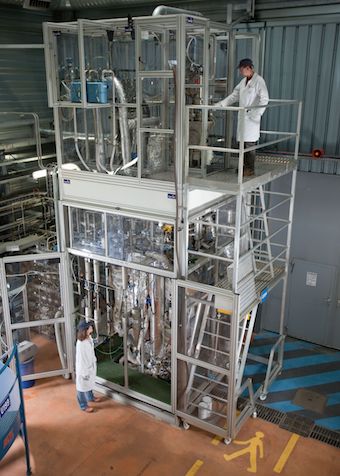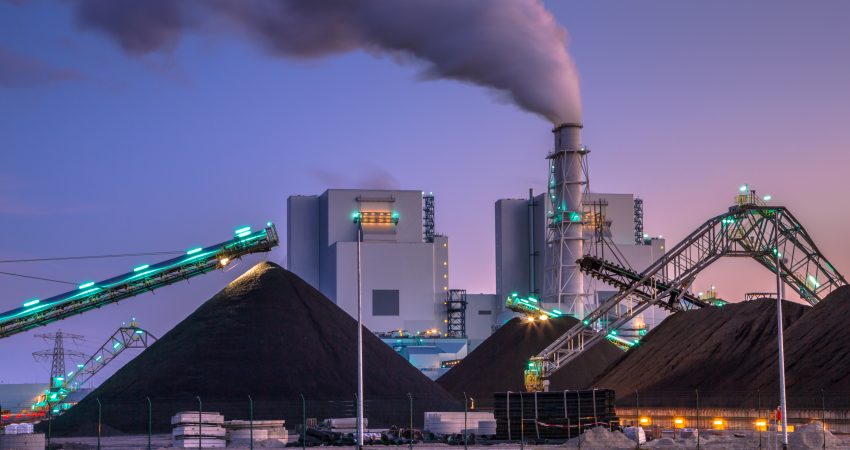
Press release: Project CHEERS receives all formal confirmations from funding agencies
Chinese-European Emission-Reducing Solutions
(CHEERS) R&D project kicks off
February 6th, 2018
The Chinese-European Emission-Reducing Solutions project (CHEERS) has now received all formal confirmations from the funding agencies. On 28 November, 30 members and representatives of the CHEERS project consortium gathered in Trondheim, Norway, to formally kick off the project. The project will, within five years, look to develop, upscale and test a 2nd generation chemical-looping technology at a scale of 3MW to produce energy and steam with captured CO2. The aim will be to drastically reduce the efficiency drop of the CO2 capture chain. The innovative concept is deemed capable of removing 96% of combustion-related CO2 while eliminating capture losses to less than 4%, except for the CO2 compression work. Thereby, the project seeks to make a major step towards large-scale carbon footprint reduction of power/steam generation system using heavy feed namely petcoke.
With a budget of €16.8 million, the project is partially financed by the European Union’s Horizon 2020 research and innovation programme under grant agreement No. 764697 together with the Chinese Ministry of Science and Technology (MOST) and Chinese industry. The system prototype demonstration, which is based on a fundamentally new fuel-conversion process, will be carried out at the Key Laboratory for Clean Combustion and Flue Gas Purification of the Sichuan Province, in Deyang, P.R. China.
The responsibility of the action lies with the CHEERS consortium, which comprises nine parties: SINTEF Energy Research (coordinator, Trondheim, Norway), IFP Energies nouvelles (IFPEN) (Lyon, France), Tsinghua University (Beijing, China), SINTEF Industry (Oslo, Norway), Total (France), Dongfang Boiler Group (Zigong, China), Zhejiang University (Hangzhou, China), Politeknika Slaska (Silesian University of Technology) (Gliwice, Poland), and Bellona (Brussels, Belgium).

The Role of Market Makers in the deployment of CCS
Bellona’s report shows that a stepwise roll-out of deep decarbonisation infrastructure, in the form of CO2 transport and CO2 storage infrastructure, can enable industrial emitters, employment unions and regional government engage constructively in creating a deeply decarbonised industrial base for Europe.
The presence of infrastructure to take CO2 away from sources and allow commercial disentanglement along the CO2 capture, transport and storage value chain will significantly reduce the commercial and organisational obstacles for CO2 capture at industrial sites. CO2 Market Makers (regional CO2 transport and storage infrastructure development organisations) are key in enabling the deployment of an effective CO2 network in order to reduce costs and risks of industrial deep decarbonisation.
Market Makers that enable deep decarbonisation of industry have come to prominence due to slow progress in deploying CO2 capture, transport and storage in Europe. The concept of planned and strategic development of CO2 infrastructure is not new. In 2005, the Bellona Foundation proposed elements of a CO2 Market Maker to increase CO2 use on the North Sea. In its November 2014 on Business Models for Commercial CO2 Transport and Storage, the Zero Emissions Platform (ZEP, the EU Technology Platform for CCS, in which Bellona plays a leading role) picked up that concept of CO2 Market Makers to progress CO2 storage deployment in line with European decarbonisation pathways.
Some key characteristics of Market Makers are that they address many of the structural market failures that retard CCS and the coordination barrier in them. Through providing a form of central planning Market Makers give certainty to a CO2 storage developer that CO2 will be captured and certainty to an industrial CO2 capture. Another characteristic is that they provide a degree of policy certainty to emitters of decarbonisation requirements and timelines. At the same time they can act if required to preserve useful retiring infrastructure, such as natural gas pipelines scheduled for decommissioning that are suitable for CO2 transport.
Bellona shaping the necessary EU regulatory framework for CCS deployment
In May 2015, in a meeting with European Commission Vice President Maroš Šefčovič, ZEP and Bellona presented this as a recommended way forward for the EU, resulting in the Vice President’s request for an ‘Executable Plan’ for enabling CCS in Europe. Bellona led the work with this plan, which was presented to the Commission in the summer of 2015. A follow-up was requested from the Commission that would identify some key strategic industrial regions for which a CO2 hubs-and-clusters approach would be particularly relevant. There are now encouraging signs that the Market Maker and CO2 hubs and clusters concepts are being picked up by CCS policy makers in various parts of Europe.
Especially encouraging is the recent news that the Norwegian government has approved funding of the FEED studies for three large-scale industrial CO2 capture projects (for cement, ammonia and waste incineration respectively) along with a shared transport and storage solution for the three. The preferred solution would be a ship terminal on the Norwegian west coast, connected with a pipeline to take CO2 to offshore storage. This would open for receiving CO2 from any emission source with access to shipping facilities. It is a solution which could benefit initial CO2 Market Makers across Europe and as such closely follows the abovementioned 2015 Bellona CO2 economy recommendations.
CO2 transport and storage benefit greatly from economies of scale – costs can be reduced quickly through scaling up and sharing of infrastructure between projects.
